In this article, you will find more information about BBC ransomware virus as well as a step-by-step guide on how to remove malicious files from an infected system and how to potentially recover files encrypted by this Phobos ransomware strain.
BBC Ransomware
A new strain of Phobos ransomware called BBC ransomware has been spotted in the wild. The threat is configured to infect computer operating systems so that it can reach personal files and extort a ransom fee for their recovery. Once the ransomware encodes them it will append a few extensions the last of which is .bbs. Unfortunately, all files encrypted by BBC ransomware remain inaccessible until their code is reverted back to its original state. To inform victims about its presence and blackmail them into paying a specified ransom, BBC ransomware loads the ransom note file info.hta.

BBC ransomware Summary
| Name | BBC |
| Type | Ransomware, Cryptovirus |
| Ransom Note | info.hta / info.txt |
| Short Description | Ransomware infection that plagues computer systems, encodes valuable files with strong cipher algorithm and demands a ransom fee. |
| Symptoms | Important files cannot be opened. They appear with the extension .bbc appended to their names. A crafted ransom message extorts ransom payment for files decryption. |
| Distribution Method | Spam Emails, Email Attachments, Hacked Websites |
| Detection Tool |
See If Your System Has Been Affected by malware
Download
Malware Removal Tool
|
User Experience | Join Our Forum to Discuss BBC ransomware. |
| Data Recovery Tool | Windows Data Recovery by Stellar Phoenix Notice! This product scans your drive sectors to recover lost files and it may not recover 100% of the encrypted files, but only few of them, depending on the situation and whether or not you have reformatted your drive. |
BBC Virus (.bbc Files)
BBC ransomware is a typical cryptovirus that aims to blackmail people into transferring money to cybercriminals. An attack with this ransomware is triggered by an executable file that contains the commands for sequent attack stages.
This file may be spread via different shady methods including malspam, malicious advertising, hacked websites and so on. Malspam is the method which is preferred by the majority of threat actors. Malspam is called to spam email messages that attempt to deliver malicious code on peoples’ PCs. The BBC ransomware may be presented as a file attachment that contains the malicious code or a link that opens a hacked website.
The moment the BBC virus is activated on the system, it performs lots of malicious changes that affect essential system components. By doing this the ransomware becomes able to evade detection and proceed with the data encryption process. To encrypt target files, BBC ransomware launches its built-in cipher module that is designed to scan available system drives for certain types of files. These files are likely to store valuable user data.
When the ransomware detects a target file, it transforms its code with the help of a sophisticated cipher algorithm. After encryption corrupted files appear with a few extensions appended to their original names. These extensions include an unique ID assigned to each victim, cybercriminals’ email address and the .bbc extension.
Unfortunately, all commonly used files listed below are likely to remain blocked by BBC ransomware:
- Audio files;
- Video files;
- Document files;
- Image files;
- Backup files;
- Banking credentials, etc.
At last, a ransom message associated with BBC ransomware loads on the screen to inform the following:
All your files have been encrypted!
All your files have been encrypted due to a security problem with your PC. If you want to restore them, write us to the e-mail 0x1service@protonmail.com
Write this ID in the title of your message –
In case of no answer in 24 hours write us to this e-mail:0x1service@airmail.cc
You have to pay for decryption in Bitcoins. The price depends on how fast you write to us. After payment we will send you the tool that will decrypt all your files.
Free decryption as guarantee
Before paying you can send us up to 5 files for free decryption. The total size of files must be less than 4Mb (non archived), and files should not contain valuable information. (databases,backups, large excel sheets, etc.)
How to obtain Bitcoins
The easiest way to buy bitcoins is LocalBitcoins site. You have to register, click ‘Buy bitcoins’, and select the seller by payment method and price.
hxxps://localbitcoins.com/buy_bitcoins
Also you can find other places to buy Bitcoins and beginners guide here:
hxxp://www.coindesk.com/information/how-can-i-buy-bitcoins/
Attention!
Do not rename encrypted files.
Do not try to decrypt your data using third party software, it may cause permanent data loss.
Decryption of your files with the help of third parties may cause increased price (they add their fee to our) or you can become a victim of a scam.
This file aims to convince you that you should contact hackers who will instruct you on how to pay a ransom fee for file recovery. Another file that presents information from cybercriminals is the text file named info.txt and here is a copy of its message:
!!!All of your files are encrypted!!!
To decrypt them send e-mail to this address: 0x1service@protonmail.com.
If we don’t answer in 24h., send e-mail to this address: 0x1service@airmail.cc
Beware, ransom payment does NOT guarantee the recovery of .bbc files. So our advice is to refrain from the ransom payment step. There are some alternative data recovery approaches that may help you to restore some .bbc files. Don’t forget that security researchers may be able to find weaknesses in the code of Phobos ransomware. Once this happens they may release a free decryption tool. Keep an eye on our BBC virus removal guide for updates.

Remove BBC Ransomware Virus and Restore Files
The so-called BBC ransomware virus is a threat with highly complex code that heavily damages essential system settings and valuable files. So the only way to use securely your infected computer system is to remove all malicious files and objects created by the ransomware. For the purpose, you should complete a specific removal guide. The ransomware removal guide that follows reveals how to clean the virus from the system – manually and automatically. If you don’t feel quite comfortable with the manual steps, it will be better to download the presented an advanced anti-malware tool as it is capable of scanning the infected system for malicious files and enable you to remove them with a few clicks.
- Step 1
- Step 2
- Step 3
- Step 4
- Step 5
Step 1: Scan for BBC ransomware with SpyHunter Anti-Malware Tool
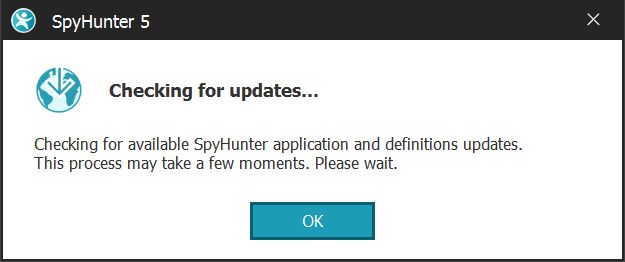
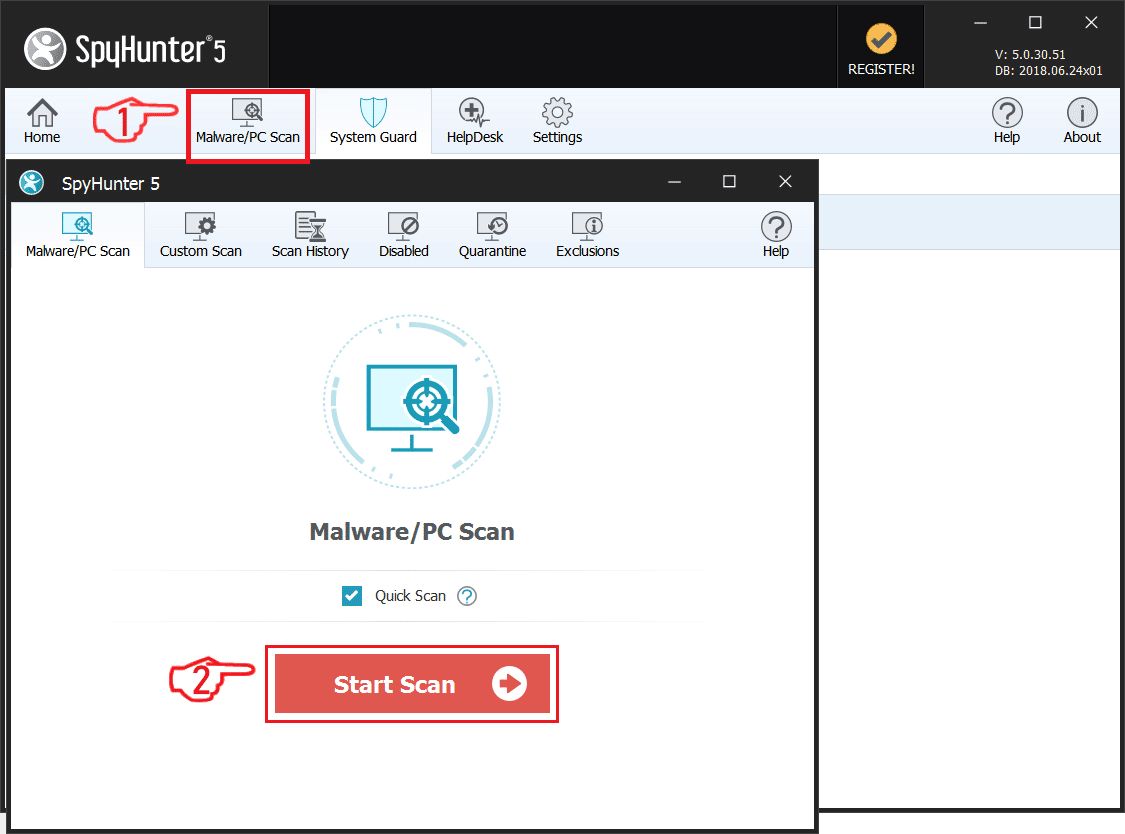
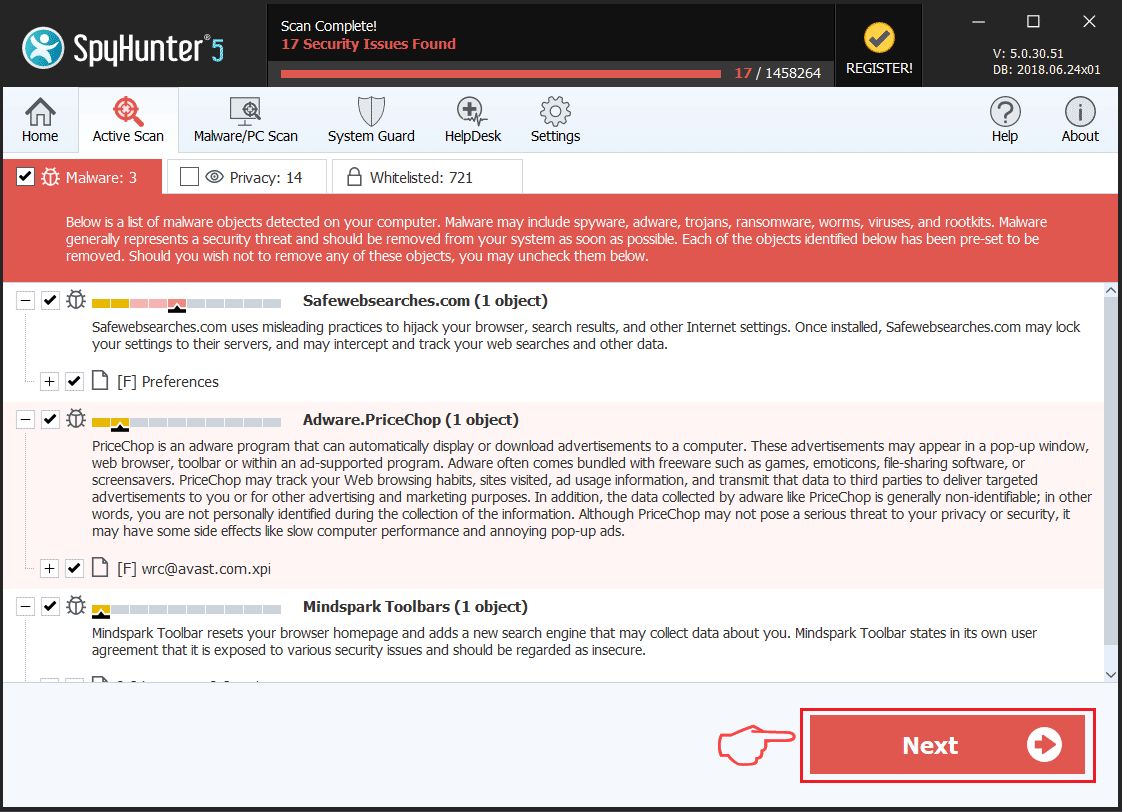
Ransomware Automatic Removal - Video Guide
Step 2: Uninstall BBC ransomware and related malware from Windows
Here is a method in few easy steps that should be able to uninstall most programs. No matter if you are using Windows 10, 8, 7, Vista or XP, those steps will get the job done. Dragging the program or its folder to the recycle bin can be a very bad decision. If you do that, bits and pieces of the program are left behind, and that can lead to unstable work of your PC, errors with the file type associations and other unpleasant activities. The proper way to get a program off your computer is to Uninstall it. To do that:

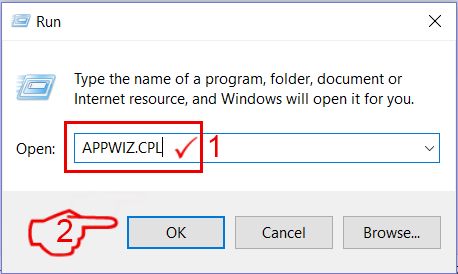
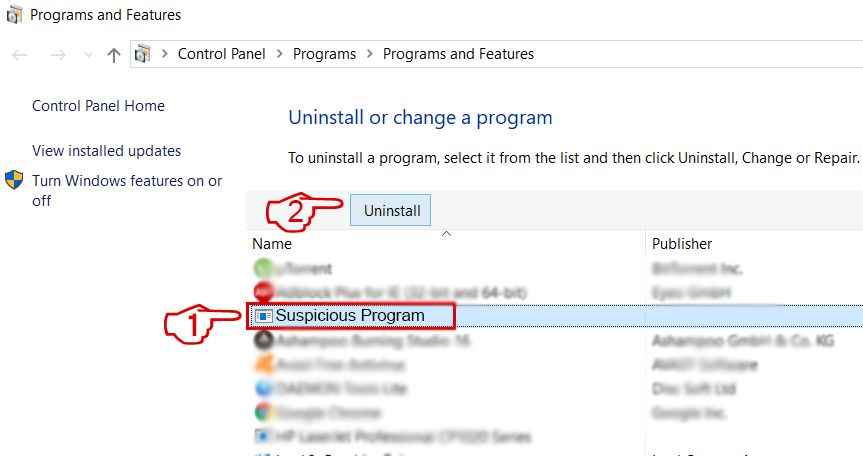 Follow the instructions above and you will successfully delete most unwanted and malicious programs.
Follow the instructions above and you will successfully delete most unwanted and malicious programs.
Step 3: Clean any registries, created by BBC ransomware on your computer.
The usually targeted registries of Windows machines are the following:
- HKEY_LOCAL_MACHINE\Software\Microsoft\Windows\CurrentVersion\Run
- HKEY_CURRENT_USER\Software\Microsoft\Windows\CurrentVersion\Run
- HKEY_LOCAL_MACHINE\Software\Microsoft\Windows\CurrentVersion\RunOnce
- HKEY_CURRENT_USER\Software\Microsoft\Windows\CurrentVersion\RunOnce
You can access them by opening the Windows registry editor and deleting any values, created by BBC ransomware there. This can happen by following the steps underneath:
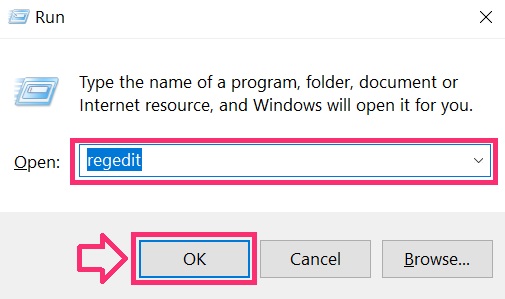

 Tip: To find a virus-created value, you can right-click on it and click "Modify" to see which file it is set to run. If this is the virus file location, remove the value.
Tip: To find a virus-created value, you can right-click on it and click "Modify" to see which file it is set to run. If this is the virus file location, remove the value.
Before starting "Step 4", please boot back into Normal mode, in case you are currently in Safe Mode.
This will enable you to install and use SpyHunter 5 successfully.
Step 4: Boot Your PC In Safe Mode to isolate and remove BBC ransomware

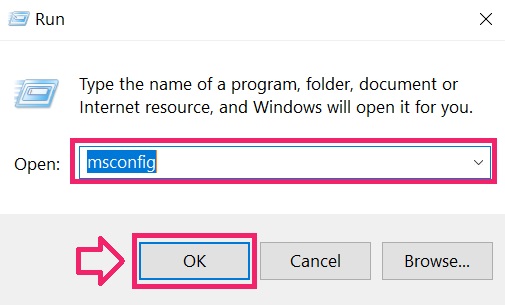
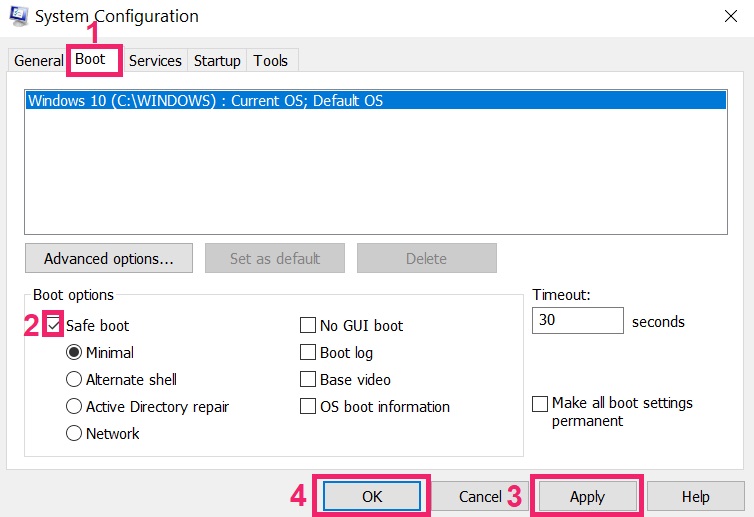
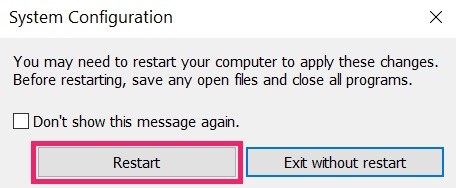
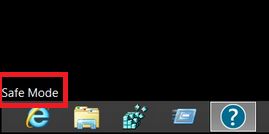
Step 5: Try to Restore Files Encrypted by BBC ransomware.
Method 1: Use STOP Decrypter by Emsisoft.
Not all variants of this ransomware can be decrypted for free, but we have added the decryptor used by researchers that is often updated with the variants which become eventually decrypted. You can try and decrypt your files using the instructions below, but if they do not work, then unfortunately your variant of the ransomware virus is not decryptable.
Follow the instructions below to use the Emsisoft decrypter and decrypt your files for free. You can download the Emsisoft decryption tool linked here and then follow the steps provided below:
1 Right-click on the decrypter and click on Run as Administrator as shown below:
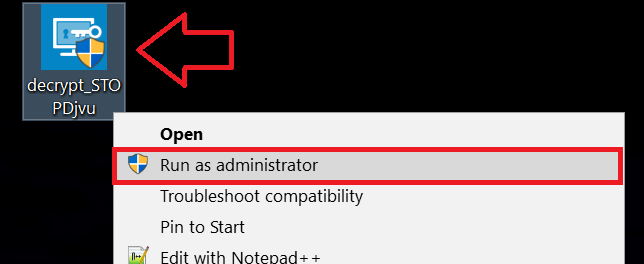
2. Agree with the license terms:
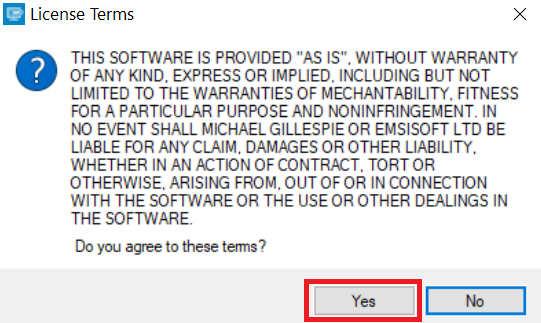
3. Click on "Add Folder" and then add the folders where you want files decrypted as shown underneath:
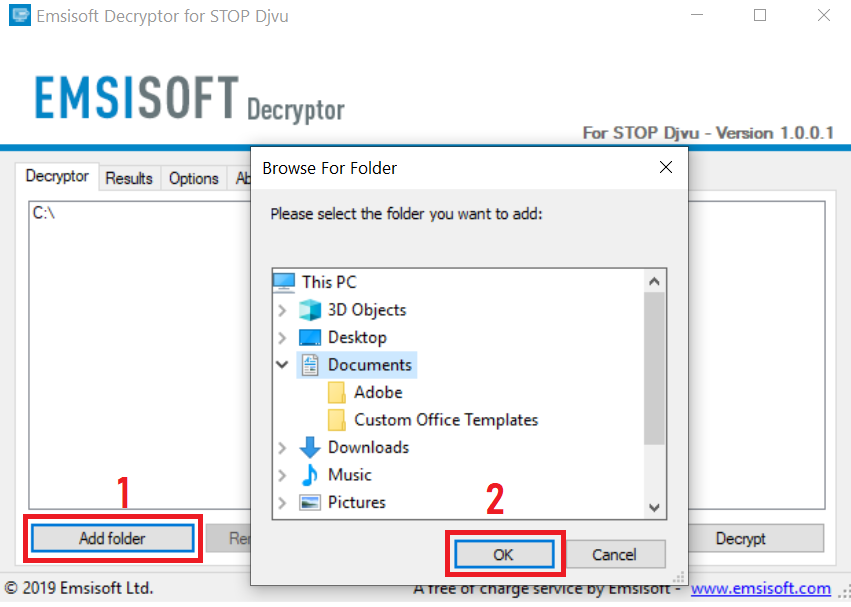
4. Click on "Decrypt" and wait for your files to be decoded.
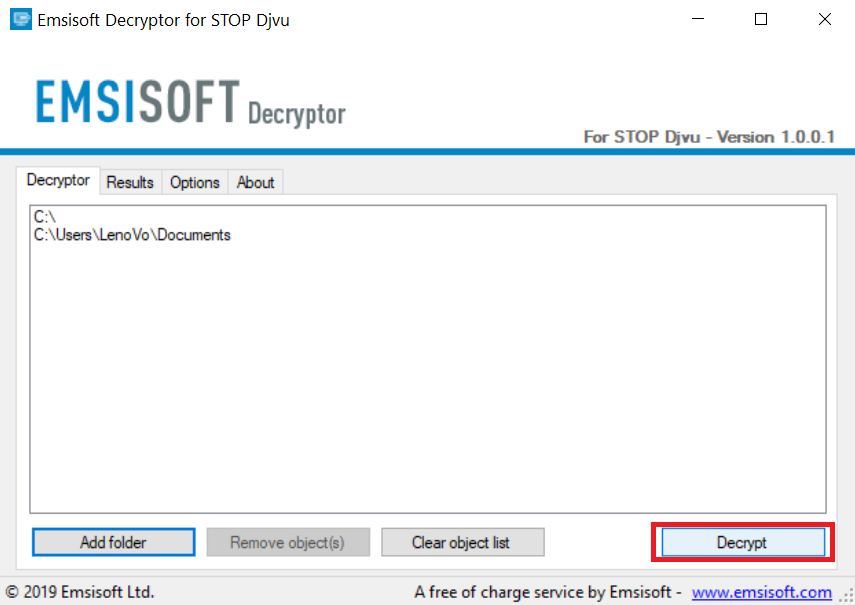
Note: Credit for the decryptor goes to Emsisoft researchers who have made the breakthrough with this virus.
Method 2: Use data recovery software
Ransomware infections and BBC ransomware aim to encrypt your files using an encryption algorithm which may be very difficult to decrypt. This is why we have suggested a data recovery method that may help you go around direct decryption and try to restore your files. Bear in mind that this method may not be 100% effective but may also help you a little or a lot in different situations.
Simply click on the link and on the website menus on the top, choose Data Recovery - Data Recovery Wizard for Windows or Mac (depending on your OS), and then download and run the tool.
BBC ransomware-FAQ
What is BBC ransomware Ransomware?
BBC ransomware is a ransomware infection - the malicious software that enters your computer silently and blocks either access to the computer itself or encrypt your files.
Many ransomware viruses use sophisticated encryption algorithms to make your files inaccessible. The goal of ransomware infections is to demand that you pay a ransom payment to get access to your files back.
What Does BBC ransomware Ransomware Do?
Ransomware in general is a malicious software that is designed to block access to your computer or files until a ransom is paid.
Ransomware viruses can also damage your system, corrupt data and delete files, resulting in the permanent loss of important files.
How Does BBC ransomware Infect?
Via several ways.BBC ransomware Ransomware infects computers by being sent via phishing emails, containing virus attachment. This attachment is usually masked as an important document, like an invoice, bank document or even a plane ticket and it looks very convincing to users.
Another way you may become a victim of BBC ransomware is if you download a fake installer, crack or patch from a low reputation website or if you click on a virus link. Many users report getting a ransomware infection by downloading torrents.
How to Open .BBC ransomware files?
You can't without a decryptor. At this point, the .BBC ransomware files are encrypted. You can only open them once they are decrypted using a specific decryption key for the particular algorithm.
What to Do If a Decryptor Does Not Work?
Do not panic, and backup the files. If a decryptor did not decrypt your .BBC ransomware files successfully, then do not despair, because this virus is still new.
Can I Restore ".BBC ransomware" Files?
Yes, sometimes files can be restored. We have suggested several file recovery methods that could work if you want to restore .BBC ransomware files.
These methods are in no way 100% guaranteed that you will be able to get your files back. But if you have a backup, your chances of success are much greater.
How To Get Rid of BBC ransomware Virus?
The safest way and the most efficient one for the removal of this ransomware infection is the use a professional anti-malware program.
It will scan for and locate BBC ransomware ransomware and then remove it without causing any additional harm to your important .BBC ransomware files.
Can I Report Ransomware to Authorities?
In case your computer got infected with a ransomware infection, you can report it to the local Police departments. It can help authorities worldwide track and determine the perpetrators behind the virus that has infected your computer.
Below, we have prepared a list with government websites, where you can file a report in case you are a victim of a cybercrime:
Cyber-security authorities, responsible for handling ransomware attack reports in different regions all over the world:
Germany - Offizielles Portal der deutschen Polizei
United States - IC3 Internet Crime Complaint Centre
United Kingdom - Action Fraud Police
France - Ministère de l'Intérieur
Italy - Polizia Di Stato
Spain - Policía Nacional
Netherlands - Politie
Poland - Policja
Portugal - Polícia Judiciária
Greece - Cyber Crime Unit (Hellenic Police)
India - Mumbai Police - CyberCrime Investigation Cell
Australia - Australian High Tech Crime Center
Reports may be responded to in different timeframes, depending on your local authorities.
Can You Stop Ransomware from Encrypting Your Files?
Yes, you can prevent ransomware. The best way to do this is to ensure your computer system is updated with the latest security patches, use a reputable anti-malware program and firewall, backup your important files frequently, and avoid clicking on malicious links or downloading unknown files.
Can BBC ransomware Ransomware Steal Your Data?
Yes, in most cases ransomware will steal your information. It is a form of malware that steals data from a user's computer, encrypts it, and then demands a ransom in order to decrypt it.
In many cases, the malware authors or attackers will threaten to delete the data or publish it online unless the ransom is paid.
Can Ransomware Infect WiFi?
Yes, ransomware can infect WiFi networks, as malicious actors can use it to gain control of the network, steal confidential data, and lock out users. If a ransomware attack is successful, it could lead to a loss of service and/or data, and in some cases, financial losses.
Should I Pay Ransomware?
No, you should not pay ransomware extortionists. Paying them only encourages criminals and does not guarantee that the files or data will be restored. The better approach is to have a secure backup of important data and be vigilant about security in the first place.
What Happens If I Don't Pay Ransom?
If you don't pay the ransom, the hackers may still have access to your computer, data, or files and may continue to threaten to expose or delete them, or even use them to commit cybercrimes. In some cases, they may even continue to demand additional ransom payments.
Can a Ransomware Attack Be Detected?
Yes, ransomware can be detected. Anti-malware software and other advanced security tools can detect ransomware and alert the user when it is present on a machine.
It is important to stay up-to-date on the latest security measures and to keep security software updated to ensure ransomware can be detected and prevented.
Do Ransomware Criminals Get Caught?
Yes, ransomware criminals do get caught. Law enforcement agencies, such as the FBI, Interpol and others have been successful in tracking down and prosecuting ransomware criminals in the US and other countries. As ransomware threats continue to increase, so does the enforcement activity.
About the BBC ransomware Research
The content we publish on SensorsTechForum.com, this BBC ransomware how-to removal guide included, is the outcome of extensive research, hard work and our team’s devotion to help you remove the specific malware and restore your encrypted files.
How did we conduct the research on this ransomware?
Our research is based on an independent investigation. We are in contact with independent security researchers, and as such, we receive daily updates on the latest malware and ransomware definitions.
Furthermore, the research behind the BBC ransomware ransomware threat is backed with VirusTotal and the NoMoreRansom project.
To better understand the ransomware threat, please refer to the following articles which provide knowledgeable details.
As a site that has been dedicated to providing free removal instructions for ransomware and malware since 2014, SensorsTechForum’s recommendation is to only pay attention to trustworthy sources.
How to recognize trustworthy sources:
- Always check "About Us" web page.
- Profile of the content creator.
- Make sure that real people are behind the site and not fake names and profiles.
- Verify Facebook, LinkedIn and Twitter personal profiles.



